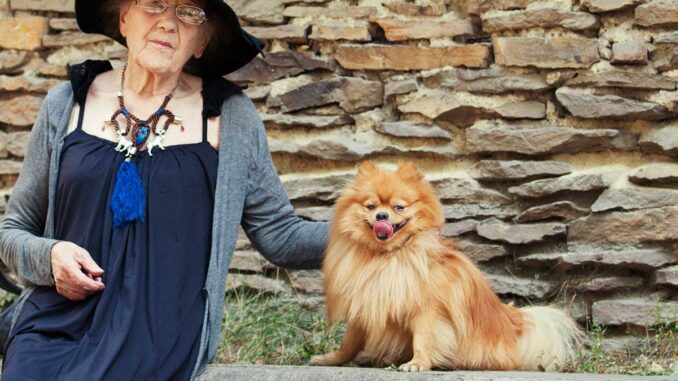
These spunky and spirited dogs look adorable with their fluffy coat. They are also very small in size (3-7 pounds) and easy to carry around. You would think that they’d be good dogs for seniors but the truth is they might not be the best choice. Let’s find out why.
Pomeranians are difficult to housetrain
Don’t be fooled by their cute looks because Pomeranians can be quite sassy and self-possessed. His proud nature sometimes makes him difficult to housetrain. He may even consider himself too bright and not take orders from someone who he considers less important. So it’s absolutely necessary that you set the rules and let him know who the boss is from the getgo. However, some seniors might not be in the position to put in too much work in training them.
Pomeranians bark a lot
They bark excessively because that’s their major communication method. They also bark when they are suspicious of a stranger. It’s their reaction to fear and a way to protect their owner. While that sounds very sweet, the frequent barking would be a problem for the neighbors.
Pomeranians need regular exercise
While they are fine living in apartments, they also require regular walks and are overall very active despite their small size. As a result, The American Kennel Club does not list Pomeranians in their list of best dogs for apartments. They will do fine in apartments but need to be taken out regularly.
… and extensive grooming
In addition, Pomeranians also require regular and extensive grooming. Their double coat sheds heavily and needs attention including brushing several times per week to prevent matting of hair (daily during the shedding season), and professional grooming every 1-2 months at a minimum.
Considering all these factors, a Pomeranian might not be a great dog for seniors. They are only suited for people who are willing to give a lot of time and put in the energy needed to care for them.
Go back to our list of the best dog breeds for seniors.
Disclaimer: This website's content is not a substitute for veterinary care. Always consult with your veterinarian for healthcare decisions. Read More.
